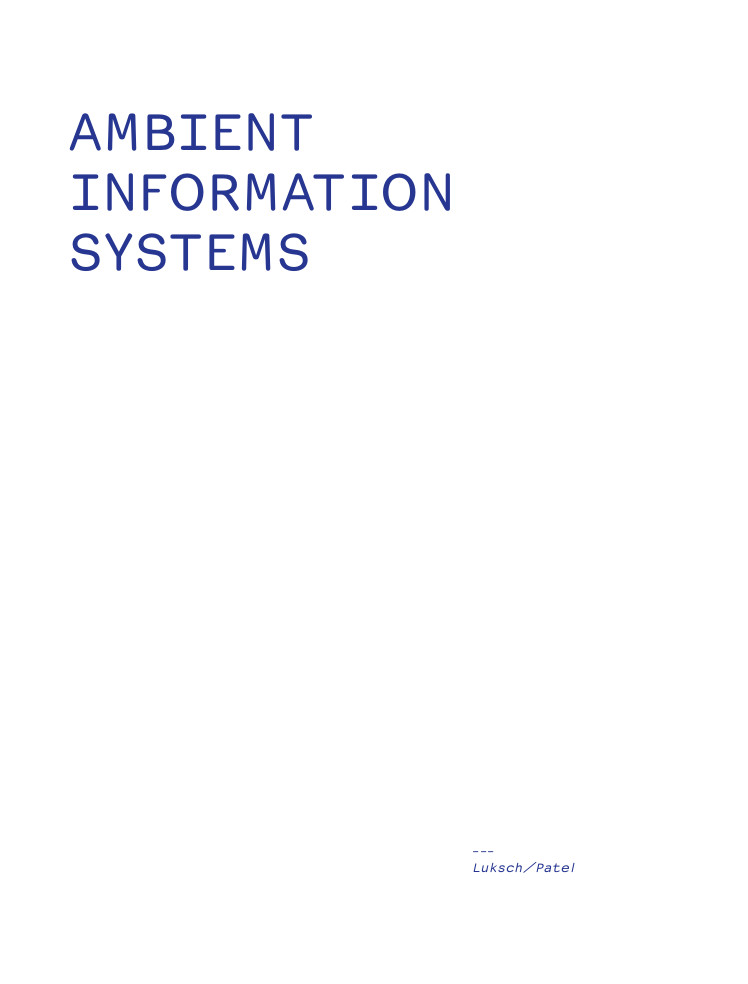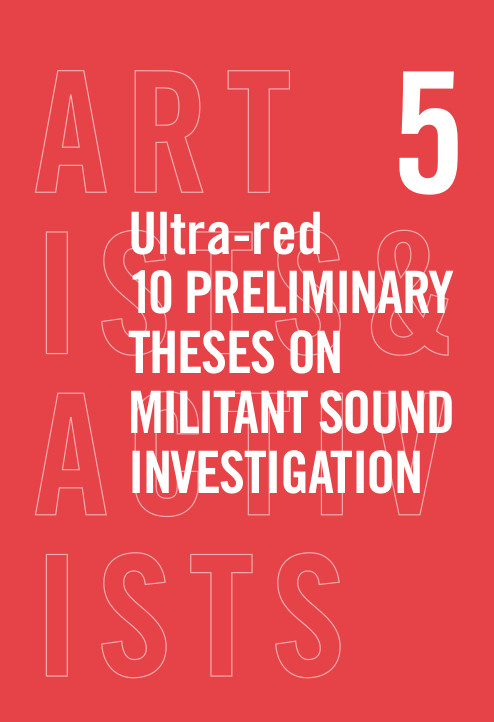Manu Luksch, Mukul Patel (eds.): Ambient Information Systems (2009)
Filed under book | Tags: · activism, art, creative industries, media activism, media art

“The publication elucidates the work of Manu Luksch, Mukul Patel and collaborators as part of the wave of critical art that has emerged alongside the rise of digital networks. Interrogating the social and political transformations of the late 20th/early 21st centuries, their practice bridges art and activism, and recalls aspects of the 1910s-20s avant-garde and 1960s-70s conceptual and systems art.
A major essay by media theorist Armin Medosch situates the work of the London-based artists amidst the rise of the ‘creative industries’ idea, inner-city regeneration, and the dot-com boom. Medosch also discusses critical art in the light of ‘open source culture’ and offers an analysis that draws on systems theory. Other contributors to the book include independent media activist Keiko Sei on the ‘camcorder revolution’ in Burma; policy consultant and writer Naseem Khan on grass-roots regeneration in East London; activist/artist Siraj Izhar on praxis as process; and philosopher/dramaturge Fahim Amir on techno-democracy.”
With contributions by Fahim Amir, Siraj Izhar, Naseem Khan, Armin Medosch, Keiko Sei, and Shane Solanki.
Some texts are in German. Translator: Nicholas Grindell
Published in London, 2009
ISBN 9780955624506
400 pages
PDF (single PDF, added on 2013-11-22)
PDF (PDF chapters)
Ultra-Red: 10 Preliminary Theses on Militant Sound Investigation (2008)
Filed under pamphlet | Tags: · activism, military, sound recording

International sound art collective Ultra-red released this document to trigger discussion both within the collective and beyond on the theory and practice of sound-based activism.
Publisher Printed Matter, 2008
Issue 5 of Artists & Activists
ISBN 089439035X, 9780894390357
10 pages
PDF (updated on 2012-8-3)
Comment (0)Reporters Without Borders: Handbook for Bloggers and Cyber-Dissidents, v2 (2008)
Filed under brochure | Tags: · activism, blogging, censorship, journalism

The handbook offers practical advice and techniques on how to create a blog, make entries and get the blog to show up in search engine results. It gives clear explanations about blogging for all those whose online freedom of expression is subject to restrictions, and it shows how to sidestep the censorship measures imposed by certain governments, with a practical example that demonstrates the use of the censorship circumvention software Tor.
The leaders of authoritarian countries are becoming more and suspicious of bloggers, these men and women who, although not journalists, publish news and information online and who, worse still, often tackle subjects the so-called traditional media dare not cover. In some countries, blogs have become an important new source of news. It is to protect this source that Reporters Without Borders has updated its handbook.
Publisher Reporters Without Borders, Paris, 2008
More info (publisher)
Comment (0)
